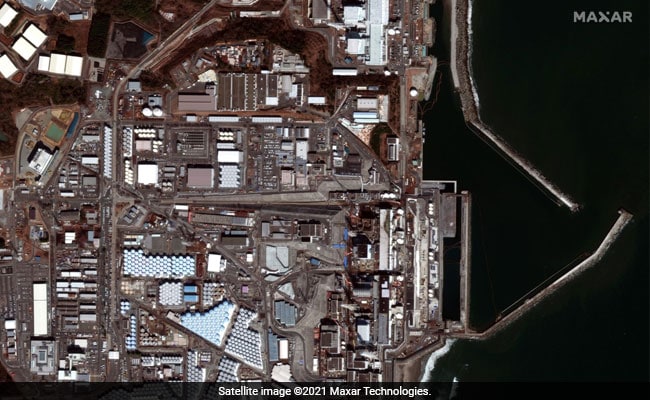In Stunning Satellite Pics, How Japan Rebuilt Itself After Earthquake, Tsunami
Fukushima plant on Feb. 28, 2021. Click here for high resolution pic.
New Delhi:
Japan will tomorrow mark 10 years since the devastating earthquake and tsunami, followed by the Fukushima nuclear disaster, the worst natural disaster in the country’s history. 19,000 people lost their lives and around a lakh had to flee their homes.
A magnitude 9.0 earthquake and a tsunami triggered the Fukushima disaster, which released large amounts of radiation into the air, earth and water around the nuclear power plant 220 northeast of Tokyo.
High resolution satellite imagery shows the impact of the catastrophe and how Japan rebuilt itself over the years.
The images are from Maxar’s satellites and capture a series of historic images that reveal the extent of destruction. Maxar continued to monitor the region and captured satellite images of before the earthquake and tsunami struck, immediately after the disaster and recent images that provide a current view of the same locations.
The earthquake was so powerful that it moved Japan’s main Honshu island 2.4 metres east and may even have shifted the Earth itself on its axis.

After the disaster, 12 percent of Fukushima prefecture was off-limits and around 1,65,000 people fled their homes. (File)
The tsunami overwhelmed the cooling systems at the Fukushima Daiichi nuclear plant, eventually sending three of its six reactors into meltdown. Four reactors, including one that was not operational at the time of the quake, were damaged, and explosions ravaged reactors one and three. One of the satellite images shows the nuclear plant from November 15, 2009, nearly 1.5 years before the disaster.

Satellite images of the Fukushima Daiichi nuclear power facility before the tsunami (left), days after the tsunami (top right) and nearly a decade later (bottom right).Click here for high resolution pic.
Another photo, taken days after the meltdown, on March 14, 2011, details the damage and series of explosions to the plant’s reactors. A recent photo, from February this year, shows the storage tanks around the facility that are being used to store treated radioactive water in the years since the meltdown.
The Sendai port and the airport were inundated by the tsunami. A set of satellite images show the port nearly a year before the tsunami, days after it and another image over nine years later, from August 11 last year.

Satellite images of Sendai port before the catastrophe (left), days after the it (top right) and nearly a decade later, from August last year (bottom right).Click here for high resolution pic.
In nearby Natori, hundreds of homes and building were washed away by the waves along. Te ocean’s surge also flooded fields and led to large piles of debris.

Satellite images of Natori port before the catastrophe (left), days after the it (top right) and nearly a decade later, from August last year (bottom right).Click here for high resolution pic.
Japan spent 31.3 trillion yen on reconstruction from the earthquake and tsunami – roughly the size of Egypt’s economy – with another 1.6 trillion yen earmarked for the coming five years, news agency Reuters reported.
(With inputs from AFP and Reuters)

